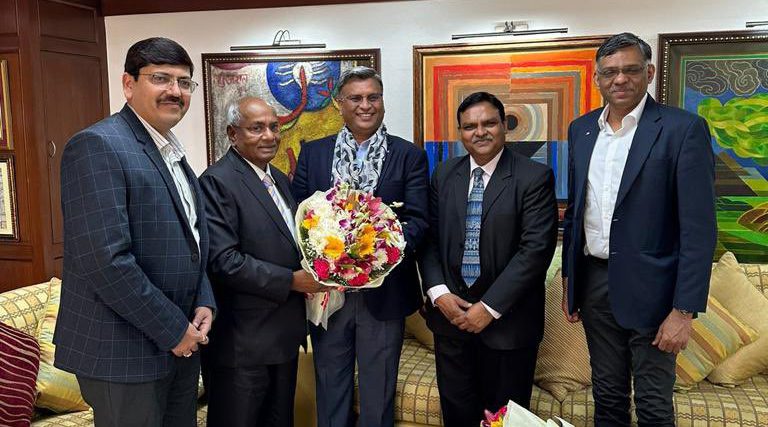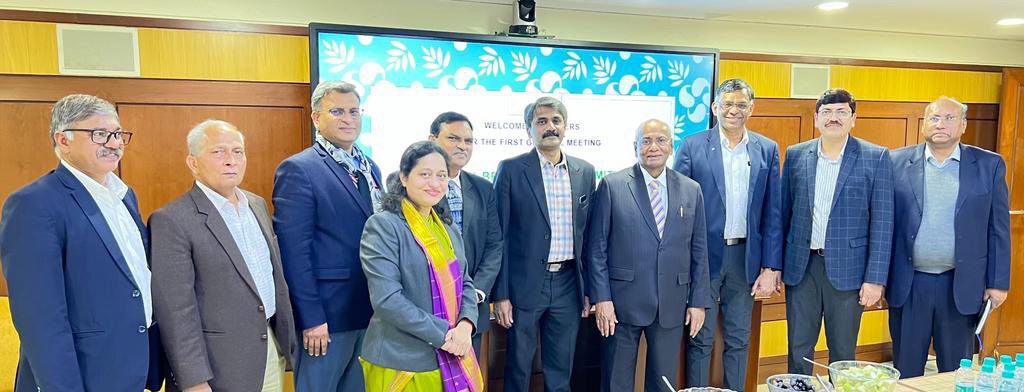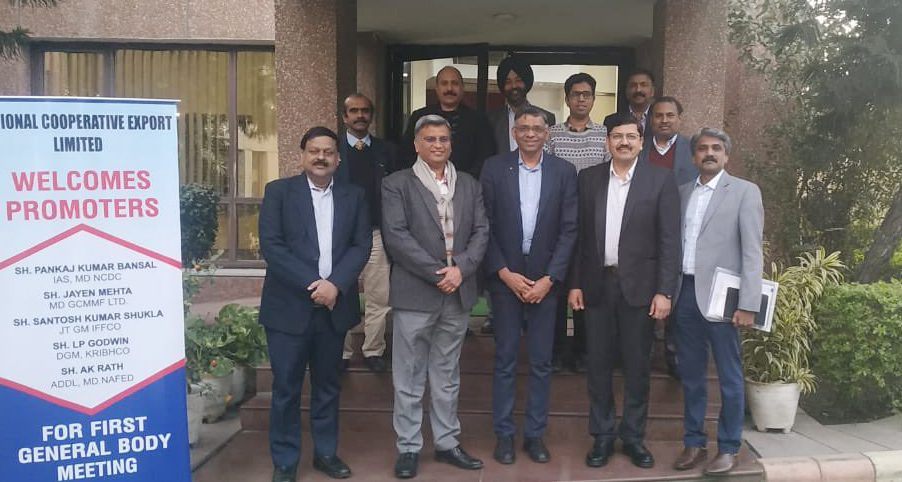After seed and organic multistate co-ops, Cooperation Secretary Gyanesh Kumar is scheduled to meet the media informally today (Thursday) on Multistate Co-op Export which is being set up in the county.
The new co-op to promote export has had its first board meeting earlier this week, in which representatives of all the promoters met. The five of the promoters are IFFCO, Kribhco, Amul, Nafed and NCDC. While NCDC was represented by Pankaj Bansal, IFFCO and Kribhco were represented by Santosh Shukla and L P Godwin respectively.
COO and Interim MD Jayen Mehta himself represented Amul while A K Rath, Additional MD represented Nafed. The leaders were later invited to lunch by IFFCO MD Dr U S Awasthi. Awasthi tweeted about this meeting and praised both Pankaj Bansal and Jayen Mehta for their dynamism.
Interestingly, the IFFCO Sadan is going to be the headquarters of the national seed co-operative while Amul’s Janakpuri office in Delhi would be the head office of national export co-op. NDDB’s Anand would be the seat of Organic co-op, as reported earlier.


It bears recalling that the Union Cabinet approved setting up of three national level Multi-state cooperatives, one of which is export society under the MSCS Act, 2002. Primary to national level cooperatives societies including primary societies, district, state and national level federations and multi state cooperative societies can become its Member.
All these cooperatives will have their elected representatives on the Board of the society as per its bye-laws. It will act as an umbrella organization for export of surplus goods/services produced by various cooperative societies across the country with support from relevant Union Ministries.
The proposed society will provide thrust to exports from the cooperative sector by acting as an umbrella organisation for carrying out and promoting exports. This will help unlock the export potential of Indian cooperatives in global markets.
This proposed society will also help cooperatives in getting benefits of various export related schemes and policies of different ministries of the Government of India in a focused manner through ‘Whole of Government Approach’.
This will also help in achieving the goal of “Sahakar-se-Samriddhi” through the inclusive growth model of cooperatives where the members would benefit both by realization of better prices through export of their goods and services and also by dividend distributed out of the surplus generated by the society.
Higher exports through the proposed society will increase production of goods and services by cooperatives at various levels thus leading to more employment in the cooperative sector. Processing of goods and enhancing services to match international standards will also generate additional employment. Increased export of cooperative products would, in turn, also promote “Make in India” thus leading to Atmanirbhar Bharat.






















































